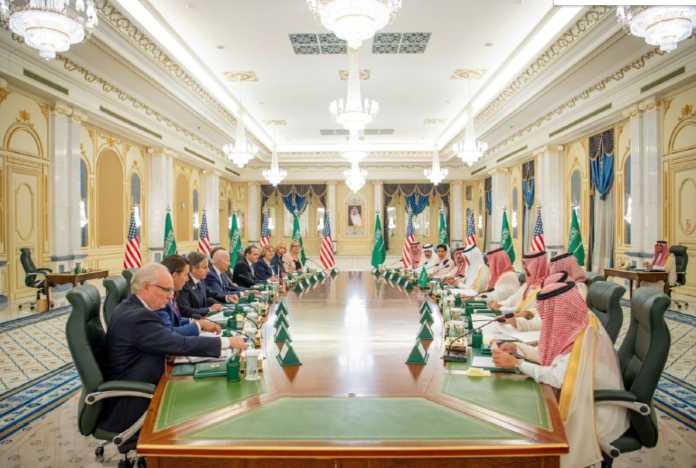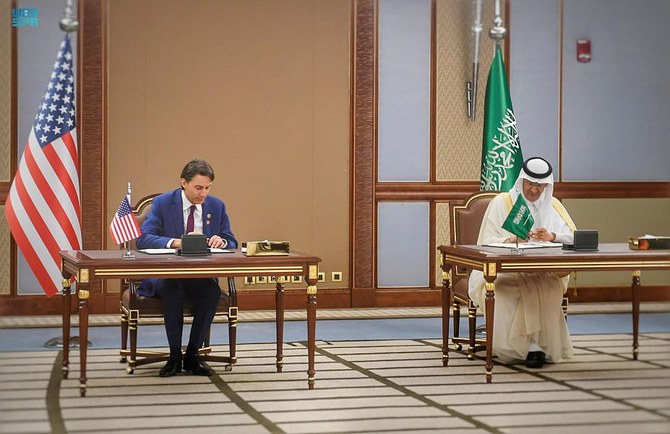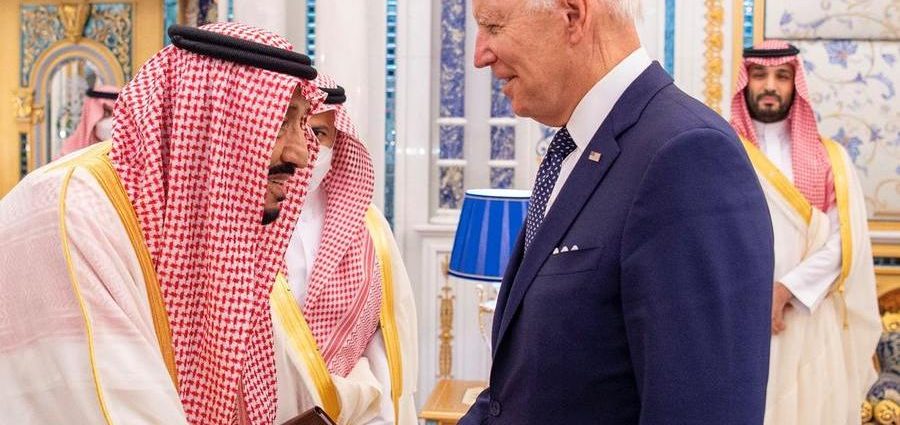US, Saudi Arabia agree on stopping Iran getting nuclear weapons
In a statement released by the Saudi state news agency, SPA, Biden also reaffirmed the United States’ continued commitment to assisting “Saudi Arabia’s security and territorial defence, and aiding the Kingdom’s capacity to procure critical capabilities to protect its people and territory against foreign threats.”

In a joint statement, Saudi Arabia and the US emphasised the need to further thwart Iran’s meddling in “the internal affairs of other countries, its support for terrorism through its armed proxies, and its efforts to disrupt the security and stability of the region.”
Both sides emphasised the significance of ensuring the unhindered flow of business across vital international waterways, including the Strait of Hormuz and Bab al-Mandab.
The main Shi’ite and Sunni Muslim governments in the Middle East, Tehran and Riyadh, severed ties in 2016 over supporting different factions in proxy battles taking place throughout the region, from Yemen to Syria and other places.
In exchange for relief from economic sanctions, Iran inked an agreement in 2015 with six major powers to restrict its nuclear programme and to make it more difficult to develop a weapon. Iran claims that only peaceful atomic energy is the goal of its nuclear programme.
In 2018, the United States withdrew from the agreement after then-President Donald Trump claimed it was insufficient to prevent Iran from acquiring nuclear weapons.
Since then, Iran has stepped up some nuclear activity, setting back efforts to reach an agreement in negotiations between Western powers and Tehran in Vienna.

The agreements align with Saudi Vision 2030, led by HRH Prince Mohammed bin Salman, as it seeks wider investment opportunities in promising sectors that can benefit the peoples of both nations.
The bilateral agreements, signed during US President Joe Biden’s visit to the Kingdom comprise 13 agreements made with the Ministry of Investment, the Royal Commission for Jubail and Yanbu, and numerous private sector companies.
They include a group of leading American companies, such as Boeing Aerospace, Raytheon Defense Industries, Medtronic and Digital Diagnostics, IKVIA in the healthcare sector, and many other US companies across the energy, tourism, education, manufacturing and textiles sectors.
The Saudi Space Authority also signed the Artemis Accords with US Space Agency (NASA), which would allow it to undertake the joint exploration of the Moon and Mars in cooperation with the American space agency, while granting the Kingdom a seat in the international coalition preparing for the civil exploration and use of the Moon, Mars, comets and asteroids for peaceful purposes.
The Ministry of Communications and Information Technology (MCIT) signed a memorandum of cooperation with IBM, a leading digital tech company, to upskill 100,000 young women and men over 5 years within 8 innovative initiatives that can position the Kingdom as a hub for technology and innovation in the Middle East and North Africa region.
MCIT also signed a memorandum of cooperation with the US National Communications and Information Administration (NTIA), which includes cooperation between the two countries on 5G and 6G technologies. The agreement targets accelerating the growth of the digital economy and enhancing the pace of research, development and innovation in the Kingdom’s digital ecosystem.
The Ministries of Energy in the Kingdom of Saudi Arabia and the United States of America signed a partnership agreement on clean energy, which includes defining areas and projects of cooperation in this sector, alongside cooperation in on civil nuclear energy and Uranium, while reinforcing the efforts of the two countries in promoting clean energy and climate action.
The Saudi and US ministries of health also signed a memorandum of cooperation on public health, medical sciences and research.
The memorandum aims to support and bolster existing relations in public health among individuals, organizations and institutions. It also seeks to consolidate joint efforts in addressing public health issues and medical, scientific and research challenges, as well as the exchange of information, expertise and academics.
The memorandum also seeks to organize joint training for workers in the health and medical fields, while addressing the proper application of health information systems, research and development and health innovation.

